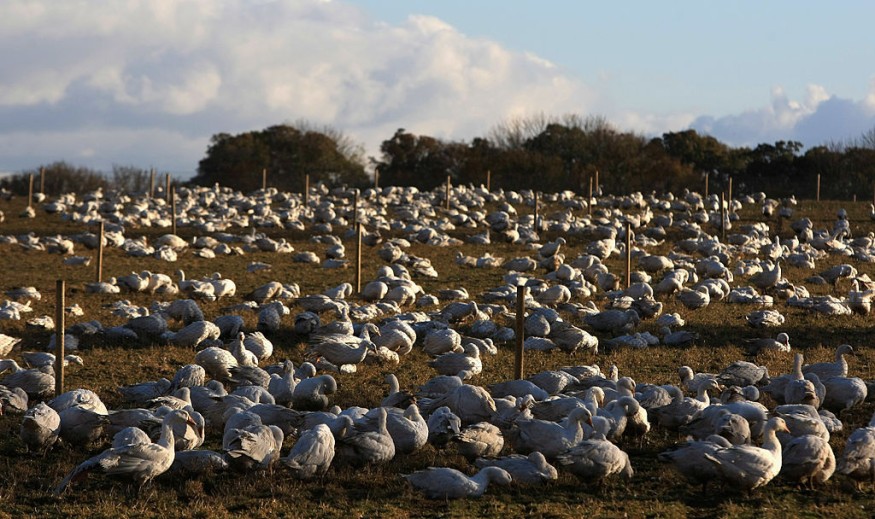
UK currently faces a 'phenomenal' level of bird flu in 38 premises, including farms and bird sanctuaries - UK's largest ever.
Tens of thousands of farmed birds, including barnacle geese, have been infected by the disease, forcing UK's chief vets to cull them to prevent "huge human, animal and trade implications", UK's chief veterinary officer Christine Middlemiss told BBC.
"Lessons learned from the 2001 foot-and-mouth outbreak are being used to try to control the outbreak," Dr Christine Middlemiss added.
As of Wednesday, the infected premises reported in the UK includes 31 in England, three in Wales, two in Scotland, and two in Northern Ireland. The recent outbreak surpasses last year's 26 confirmed cases.
The disease was being spread by migratory birds returning from north of Russia and eastern Europe, and Dr Middlemiss believes that data gathered from this event might prevent a worsening outbreak in the future.
Low risk to human health
Since UK is only a few weeks into the migratory season, which normally goes on until March, the outbreak is most likely less infectious to human, and even in overall egg production.
Dr Middlemiss said: "We are going to need to keep up these levels of heightened biosecurity for all that time.
"We can't wait until another year and have an even bigger outbreak. So, we will be working not just with our own scientists but internationally, to understand more of what we can do about what's behind it."
In addition, an avian influenza prevention zone was declared across the UK on 3 November, extending to the 29th. Vets require all bird owners to keep the animal indoors, as high level of infection in wild birds are returning after having spent the summer on the north of Russia and the east of Europe.
Although there would not be any food supply issues due to flu outbreak, Dr Middlemiss adds: "It is devastating for those individual companies involved. It's also devastating for people who keep yard flocks."
Risks to human health are "very low"
After the first detection of the avian flu A(H5N1) virus at a swan sanctuary in Worcester on 15 October, the Department for Environment Food and Rural Affairs (Defra) advises members of the public to avoid touching the diseased birds, in spite of the risks being "very low".
The RSPB said: "Everyone should take care to maintain good hygiene when feeding garden birds, regularly cleaning feeders outside with mild disinfectant, removing old bird food, spacing out feeders as much as possible, and washing your hands."
Some of the wild bird species that have died from the outbreak includes peregrine falcons, curlews and barnacle geese. In November dead swans were found around the center of Stratford-on-Avon and the Diglis Basin in Worcester, while wild birds in an urban area in Belfast were also infected. There have been other outbreaks in nature reserves in Scotland.
Dr Middlemiss highlights that the "absolute key" was biosecurity - keeping chicken sheds "as clean as a surgical theatre", which would reduce the chance of wild birds either directly or indirectly coming into contact with kept birds.
© 2025 NatureWorldNews.com All rights reserved. Do not reproduce without permission.





